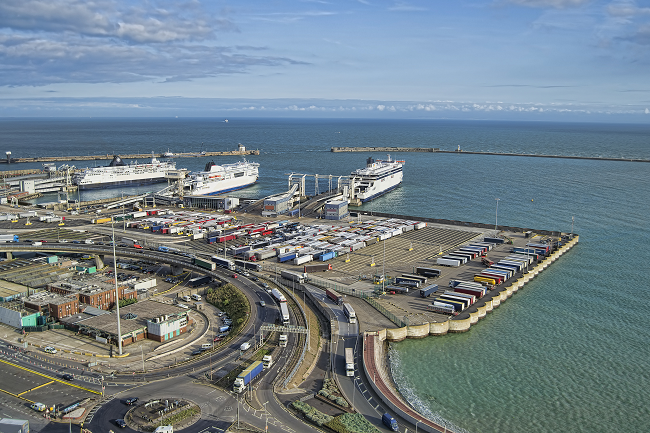
Strikes by Border Force staff could extend to Dover and other UK ports, potentially bringing freight to a standstill.
The Public and Commercial Services (PCS) union has considered targeting major ports in south-east England following eight days of industrial action at airports over the end-of-year period, the Guardian reports.
After receiving a mandate for industrial action from 100,000 members in 124 government departments and other bodies, the PCS union insists that “all options are open”.
Strikes within weeks
“We have a six-month mandate for action, so all that needs to happen at Dover and elsewhere is we must give the employer two weeks’ notice,” a union spokesperson said.
Strikes could commence as the PCS seeks a 10% pay rise and no cuts to redundancy terms for members, reports the Independent.
PCS general secretary, Mark Serwotka, has warned of a “huge escalation” of action in January, and said it was “inevitable” that the Port of Dover and other areas would be hit if ministers refuse to negotiate, warning of “extraordinary disruption to traffic”.
Ports affected
About 10,000 trucks cross the Channel every day, with constant pick-ups of perishable items from across northern France and Belgium.
The PCS has more than 2,000 members in the south-east who work at ports of entry including passport control at Dover and Calais and the EuroTunnel entrance in Coquelles.
An extension of a strike could affect services for immigration, customs and imports.
Following the Christmas break, workers across a variety of sectors have resumed industrial action in pursuit of better pay and conditions, according to the Evening Standard.
Further unrest coming
Rail workers from the RMT and Aslef unions are carrying out a number of 48-hour and 24-hour walkouts this week.
Road workers will also strike, with the action risking “bringing the road network to a standstill” after they previously took action in December.
Further industrial action has not been planned by Royal Mail workers, who walked out over the busy Christmas period, but remains a possibility as the underlying dispute has not been resolved.
Government response
Other groups planning or carrying out action include nurses and ambulance workers, teachers and lecturers, and firefighters.
The prime minister’s spokesman has said that Rishi Sunak acknowledges the “massive disruption” likely from industrial action and said the government wants a “fair” settlement but is against large wage rises, reports Bloomberg.
Work continues on new legislation to curtail public sector walkouts, with the PM considering putting proposed laws before parliament for a vote as soon as this month, amid warnings that rail strikes could last until June, according to the Times.



